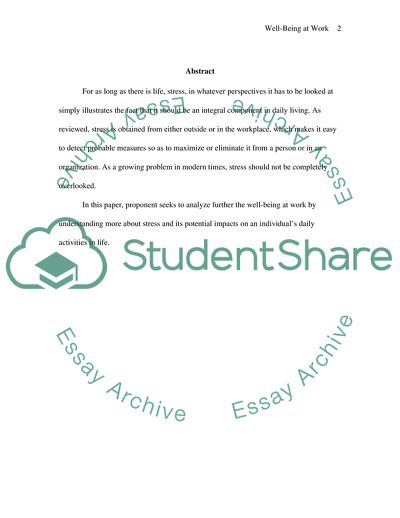Well-Being at Work Term Paper Example | Topics and Well Written Essays - 750 words. https://studentshare.org/human-resources/1769680-well-being-at-work
Well-Being at Work Term Paper Example | Topics and Well Written Essays - 750 Words. https://studentshare.org/human-resources/1769680-well-being-at-work.


